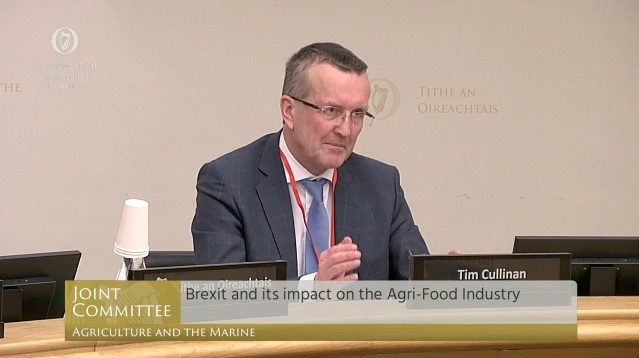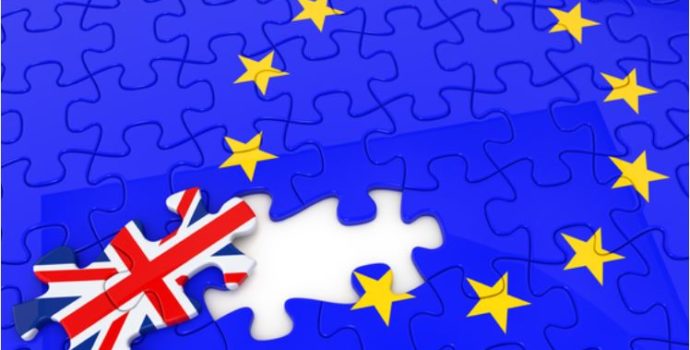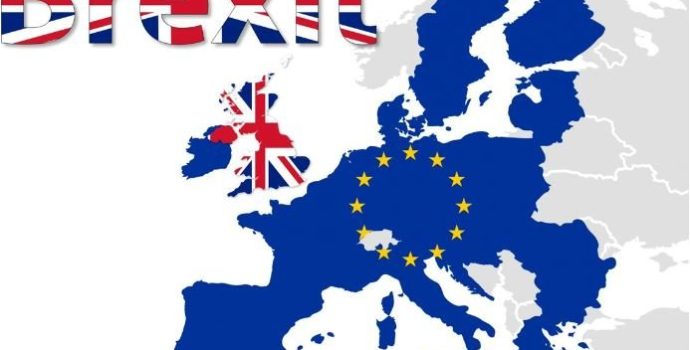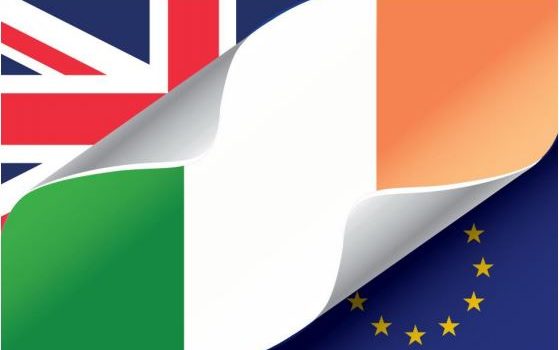FARMERS SET TO TAKE THE BIGGEST BREXIT HIT – IFA PRESIDENT TELLS OIREACHTAS COMMITTEE ON AGRICULTURE

Addressing the Joint Oireachtas Committee on Agriculture this afternoon, IFA President Tim Cullinan said regardless of the final outcome on Brexit, Irish agriculture and Irish farmers stand to lose out most.
“Whether or not a limited deal is achieved, the impact will be a deterioration of trade – what is at issue is the degree of that deterioration,” he said.
Despite massive efforts at market diversification, the UK is the current destination for 38% of Ireland’s overall agri-food exports. That is 44% of all our beef exports, 41% of cheese exports, almost 100% of mushroom exports, 60% of poultry exports, 33% of pigmeat exports, 20% of lamb exports, to name just the main sectors.
The IFA President set out IFA’s Brexit Emergency Plan, which is partly modelled on the EU’s response to the Russian ban on EU food imports in 2014, which shows the EU’s willingness to intervene in significant ways to support farmers faced with the impact of a geopolitical event in which they are powerless.
The value of EU food exports which Brexit will affect is eight times greater than the value of EU exports affected by the 2014 Russian embargo. The value of Irish agri-food exports potentially affected by Brexit is 60 times greater than affected by the Russian embargo.
Tim Cullinan said a Brexit outcome, which either reduces access for those products to the UK market or makes their continued sale onto that market uneconomic, will be disastrous for European farming and the livelihoods of farmers, particularly from Ireland.
Referring to the ongoing difficulties in reaching an agreement, he said the exit of the UK from the EU without a deal would undoubtedly lead to significant trade disruption and a lose-lose situation for the entire agri-food chain.
“Burdensome and unavoidable procedures, such as official controls of goods, SPS inspections, veterinary certificates and import tariffs will lead to increased delays for checks at borders and raise the costs for both sides,” he said.
Tim Cullinan set out six key measures that are needed to safeguard Irish and European agriculture:
- We want the EU and the UK to maintain the closest possible trading relationship, but the EU Single Market must be protected.
- It is essential to maintain a level playing field with corresponding standards on food safety, animal health and welfare and the environment
- We want to avoid burdensome delays such as control of goods and sanitary and phytosanitary inspections and veterinary certificates which will lead to delays at borders and increase costs for both sides.
- Access to the UK market must be tariff-free and quota-free
- There must be no return by the UK to a cheap food policy
- European Agri sector is a priority for support from the €5bn Brexit Adjustment Reserve.
The IFA President said Michel Barnier and his team must continue to pursue an outcome that retains the closest possible trading relationship with the UK.
“The intense discussions to secure a deal must continue, but we must also prepare for the post-Brexit scenario. In that regard, the Irish Government must ensure that Irish farmers are top of the queue for the €5bn EU Brexit fund,” he said.




